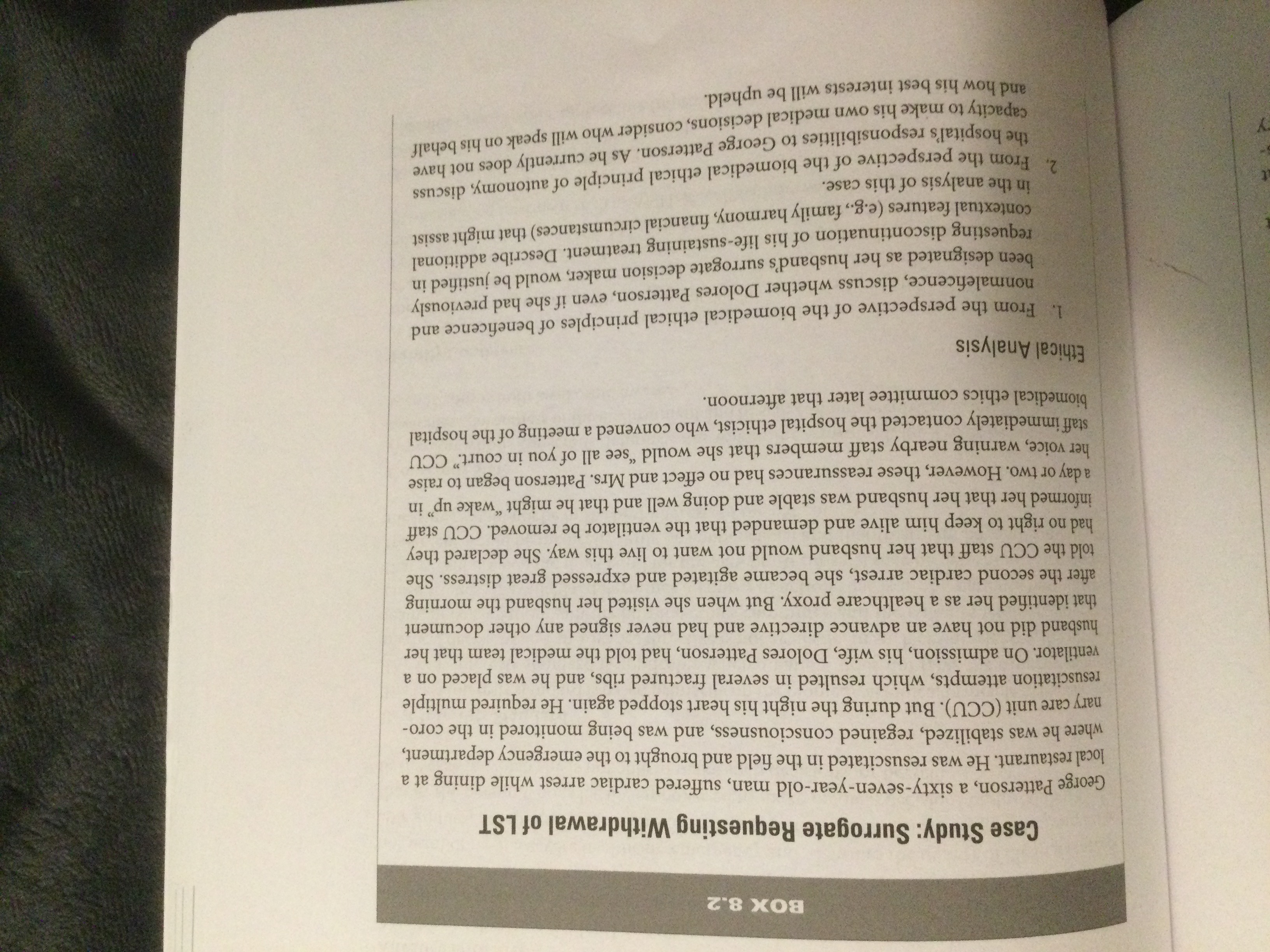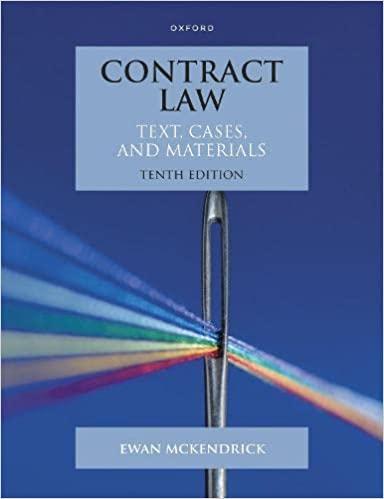I need some insight
BOX 8.2 Case Study: Surrogate Requesting Withdrawal of LST George Patterson, a sixty-seven-year-old man, suffered cardiac arrest while dining at a local restaurant. He was resuscitated in the field and brought to the emergency department, where he was stabilized, regained consciousness, and was being monitored in the coro- nary care unit (CCU). But during the night his heart stopped again. He required multiple resuscitation attempts, which resulted in several fractured ribs, and he was placed on a ventilator. On admission, his wife, Dolores Patterson, had told the medical team that her husband did not have an advance directive and had never signed any other document that identified her as a healthcare proxy. But when she visited her husband the morning after the second cardiac arrest, she became agitated and expressed great distress. She told the CCU staff that her husband would not want to live this way. She declared they had no right to keep him alive and demanded that the ventilator be removed. CCU staff informed her that her husband was stable and doing well and that he might "wake up" in a day or two. However, these reassurances had no effect and Mrs. Patterson began to raise her voice, warning nearby staff members that she would "see all of you in court." CCU staff immediately contacted the hospital ethicist, who convened a meeting of the hospital biomedical ethics committee later that afternoon. Ethical Analysis 1. From the perspective of the biomedical ethical principles of beneficence and nonmaleficence, discuss whether Dolores Patterson, even if she had previously been designated as her husband's surrogate decision maker, would be justified in requesting discontinuation of his life-sustaining treatment. Describe additional contextual features (e.g., family harmony, financial circumstances) that might assist in the analysis of this case. 2. From the perspective of the biomedical ethical principle of autonomy, discuss the hospital's responsibilities to George Patterson. As he currently does not have capacity to make his own medical decisions, consider who will speak on his behalf and how his best interests will be upheld







